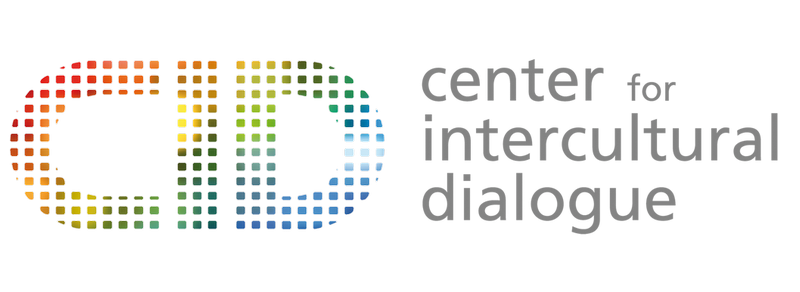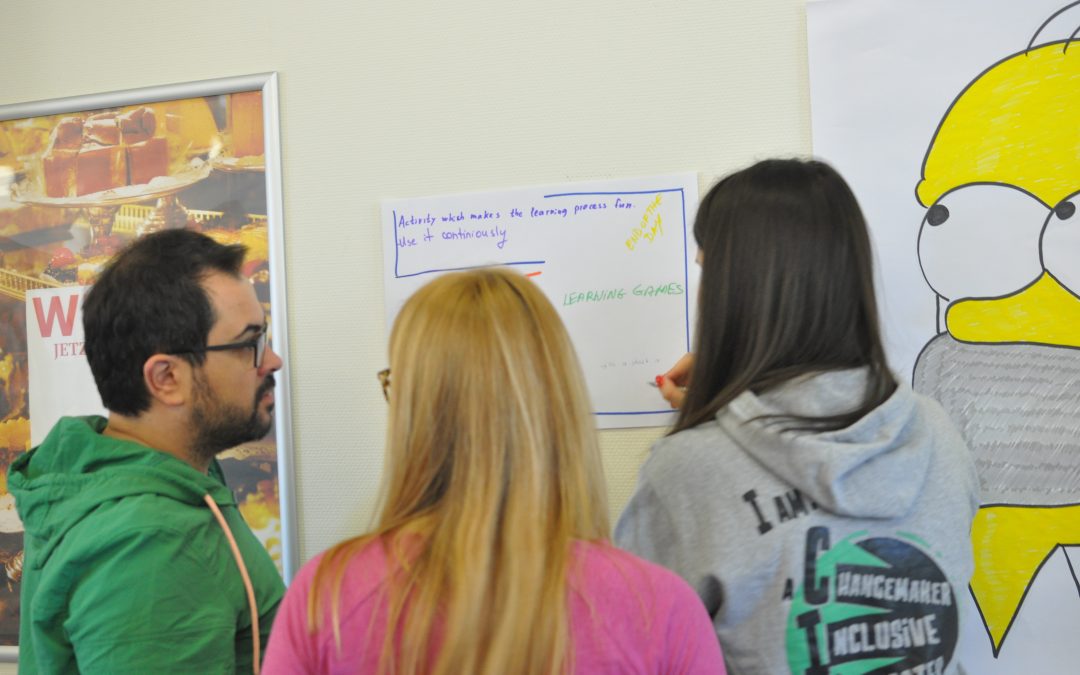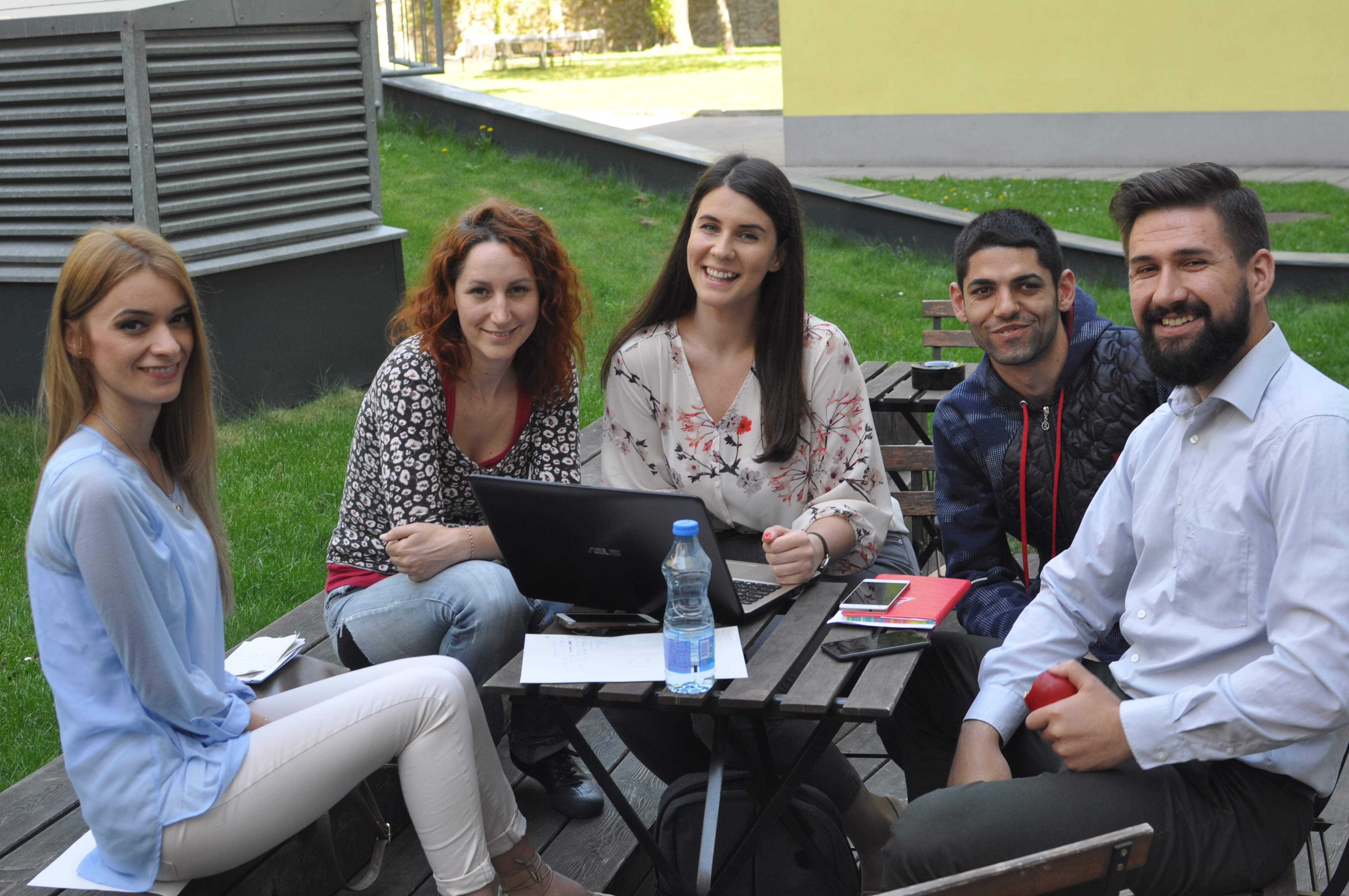Between April 16th and 24th, three of our members, Mila, Toni and Ivana, attended the training course T4T – Training for trainers in Vienna, Austria, hosted by Association for Education MLADIINFO Austria. The training course is part of the Erasmus + programme of the European Commission and it gathered 28 trainers, facilitators, youth workers and educators from 9 countries. The training aimed at exploring basic trainer skills, attitudes, knowledge, values and competencies, developing communication skills, understanding groups, creating an opportunity to practice and build on existing trainer competencies through peer assessment and fostering collaboration at European level, within Erasmus+ framework, between NGOs.
After a longer local commuting in Vienna which took more time than getting from Skopje to Vienna, our participants share their impressions and feelings from the training:
What competences did you develop and what was the most interesting or challenging activity for you?
Ivana: As a participant I was trying to get and gain as much as competences that I can , because this kind of non-formal learning is the best way for me to learn by doing something, learn from peers and maybe most important – challenge myself with new competences. For me personally the most interesting and challenging activity was the “workshop activity” in which we form groups of 3-4 people and all got one random topic to prepare a workshop for in lass the one day. So for me this was a very challenging activity because this was the first workshop that I did and I was part of the team who made the agenda and plan all the activity. While doing this activity I forgot about my panic of public speaking and actually enjoyed being the facilitator/trainer of this activity. This made me be more interested in working as a facilitator or trainer and I can wait until my next workshop.
Mila: What I found very intriguing was actually seeing how other people see themselves and the various definitions we each have in mind when speaking about the term ‘trainer’. Also following each and every one of those people’s learning processes – our ups and downs, our joint days of practice and nights of fun conversations and brainstorming on the practical part, was very entertaining and made us more compact as a group. The most challenging part would definitely have to be my public speaking piece, when I had 10 seconds to think of a topic and give a 3 min speech, having in mind the verbal and non-verbal communication, and the fact that I was quite under the weather and having some serious back issues, did not really help per se. It was very educational and eye-opening for me to see what people see me doing when I give a speech.
Toni: The practical part has always been interesting for me because you receive a topic that you do not necessarily have previous information on nor you are necessarily interested in it, but you still succeed in cooperating with a team of individuals with whom you’ve never worked before and despite all of the obstacles, whether they be linguistic or lack of resources, you manage to deliver the workshop and to intrigue the target group to want to learn more.
Is there a follow up envisioned for this training? If not yet, how will this experience be beneficial for you in your activity?
Ivana: Well as a daily youth worker I will definitely apply all of the competences and skills that I earned form this T4T. And I can also say that this T4T helped me develop myself in a better and more experienced youth worker.
Toni: As an already experienced trainer, it is always good to reflect upon your competences and to go back to the basics of what it means to be a trainer. This experience was beneficial for me in the sense that now I reminded myself of some methods which I can implement in my training programme.
Mila: Besides all of us applying what we have learned in our daily work with youth and other target groups, we bounded ourselves to spread the mission and vision of the Erasmus + programme which will be done in the form of informing the beneficiaries, promoting the values that the European Union promotes through the Erasmus + programme and developing and incorporating workshops on Erasmus+ within our training programmes for those who are interested in the benefits of it.
Mila JOSIFOVSKA, Ivana STOJCEVSKA, Antonio DANILOVSKI


